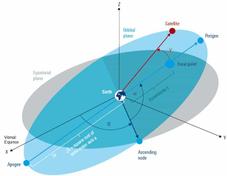Laser diode in Dentistry:5 Advantages and Disadvantages
Advertisement
This article explores the benefits and drawbacks of using diode lasers in dentistry, specifically for cutting soft tissues.
Introduction : LASER stands for “Light Amplification by Stimulated Emission of Radiation.” Laser technology has become increasingly common in dentistry, allowing for various soft and hard tissue procedures like tissue cutting, cavity preparation, periodontal plastic surgery, and even wisdom tooth extraction. Lasers offer precise control over operating parameters such as pulse energy, pulse frequency, pulse duration, and pulse relaxation.
What is a Laser diode ?
There are several types of lasers used in dentistry, including diode lasers, CO2 lasers, YAG lasers, ErYAG lasers, ErCrYSGG lasers, and HolYAG lasers. YAG family lasers operate in the 2100 to 2940 nm range, while CO2 lasers operate at 10600 nm. Diode lasers, however, utilize wavelengths between 810 and 980 nm for dental applications.
A diode laser, also known as a laser diode or injection laser diode, is a semiconductor device similar to an LED (Light Emitting Diode). It functions by directly pumping a diode with electrical current, creating lasing conditions at the junction of the diode. This process directly converts electrical energy into light.

Figure 1 depicts the use of a diode laser in an implant recovery procedure.
The specific wavelengths of light emitted by the diode laser are absorbed by certain tissues. These lasers often utilize a 200-micron fiber, comparable to the width of a 20K file. Diode lasers can be employed as an alternative to a scalpel in the second stage of surgery.
Advantages of Laser diode in Dentistry
Following are the key advantages of using laser diodes in dental services.
- Implant Safety: Diode lasers can be used safely near implants, unlike electrosurgery, due to their low heat generation and lack of electric conduction.
- Precise Cuts and Hemostasis: Lasers provide precise cuts while simultaneously promoting hemostasis (blood clotting).
- Reduced Pain and Swelling: Diode lasers minimize post-operative pain and swelling for patients.
- Pulp Preservation: When used correctly, diode lasers do not harm the dental pulp.
- Compatibility with Metal Restorations: They can be used safely around full metal restorations, amalgam fillings, and metal bars.
- No Hard Tissue Damage: Diode lasers do not harm hard tissues during dental surgery.
- Patient Familiarity: Patients are often familiar with laser technology due to its widespread use in LASIK eye surgery, which can make them more comfortable with diode laser procedures.
Disadvantages of laser diode
Following are some of the drawbacks of laser diode.
- High Initial Investment: The initial cost of a diode laser is higher compared to electrosurgery units.
- Training Required: Practitioners need specific training to safely and effectively use diode lasers, given the potential hazards.
- Slower Cutting: Diode lasers cut more slowly than electrosurgery techniques.
- Time-Consuming for Large Tissue Removal: Cutting large pieces of soft tissue can take considerably longer with a diode laser.
- Slower than Traditional Methods: Electrosurgery and scalpel techniques can often perform surgery faster than diode laser techniques.
Conclusion: Laser diodes have significantly enhanced dental procedures by offering precise, minimally invasive treatment with reduced pain, bleeding, and recovery time. Their applications in soft tissue surgeries, periodontal therapy, and teeth whitening demonstrate improved patient comfort and clinical outcomes. While they require investment in training and equipment, the overall benefits in efficiency, hygiene, and patient satisfaction make laser diodes a valuable tool in modern dental practice.
Advertisement
 RF
RF






